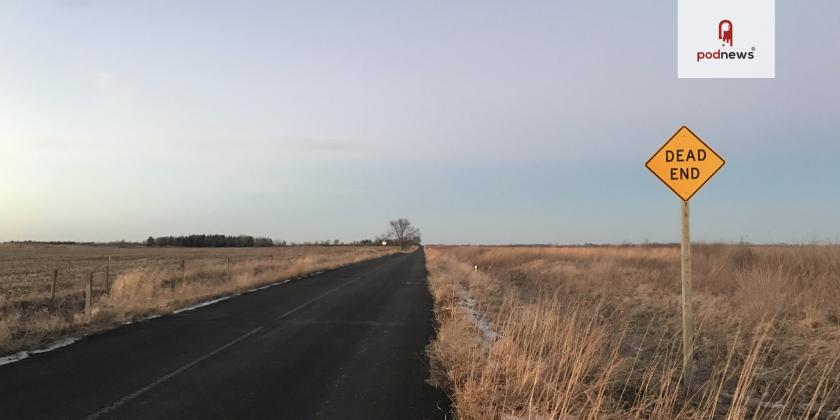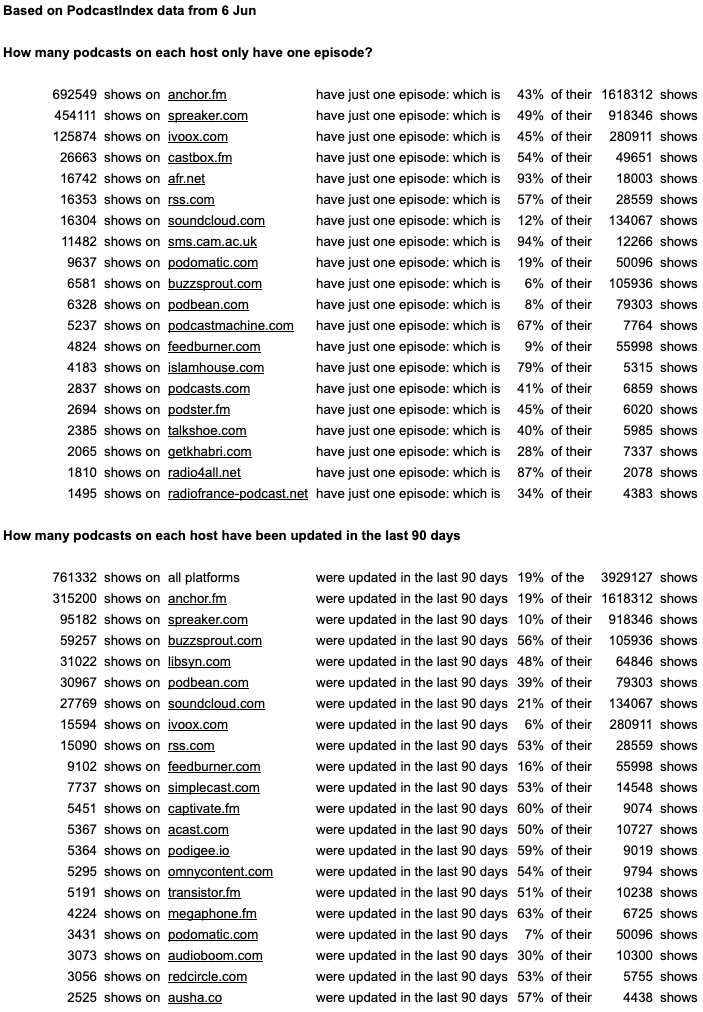
Mythbusting: is Anchor full of dead shows, and does it matter?

This article is at least a year old
We hear: “Anchor’s full of dead shows, and that’s bad for your podcast.”
We mainly hear this from paid podcast hosts. Our data on podcast hosting company changes would show why they might be nervous of Anchor.
But let’s find out, first, if it’s true: and then, if it really is bad.
Our test
We downloaded the Podcast Index data. You’ll find a link to it at the bottom of the Podcast Index homepage.
It’s useful data for this kind of analysis, since it includes two columns:
hostis the host of the RSS feed, which is usually - but not always - the podcast hosting companynewestItemPubdateis the publish date of the newest item in the feed (in Unix time).
We queried the data for two things: “one and done” shows, where a podcaster had published one show and then lost interest; and “active” shows, which is normally defined as shows updated within the last 90 days.
Our results

The data is here, which includes (scroll to the right) the SQL queries we used.
Real, or Myth?
Only 19% of Anchor shows have been updated in the past 90 days.
That exactly mirrors the total across the 3.9m shows in Podcast Index. Only 19% of those have been updated in the past 90 days, too.
Indeed, only 10% of Spreaker shows, 7% of Podomatic shows, and only 6% of shows on iVoox, are active.
When you compare Anchor’s shows to paid podcast hosts, however, it’s clear that Anchor is different: 56% of Buzzsprout shows, 48% of Libsyn shows or 60% of Captivate shows, for example are active.
Confirmed as real.
But does it matter?
The oft-quoted reason why it apparently matters is all about SEO. “Because Anchor is full of abandoned shows, that’s bad for your SEO”, you’re told.
As Moz says, it’s true that Google assigns a “fresh factor” for website searches, so pages that are stale - like podcasts that have been abandoned - will harm that individual webpage’s score. But, as the article makes clear, it’s not the only thing that matters for Google searches (and it has limited effect on other pages on the same domain anyway).
It’s unlikely to devalue Anchor’s overall SEO in Google Search, since there are still so many pages on the anchor․fm domain that are being updated (at least 315,000 pages a month). And since Anchor’s website has been around since February 2015, the age of the domain is a positive score over newer websites.
It’s true that podcast app search algorithms use recency as a score: but there’s no evidence that we can find that shows that the podcast hosting company is used in any way in in-app SEO.
So: does it matter than 81% of Anchor’s podcasts are stale? It’s difficult to see how that harms the podcasts on the platform that aren’t.
So, overall: myth busted, we think. Yes, Anchor’s got a lot of dead shows in it: but there appears to be no justification to say that it’s bad for your show.



























































































